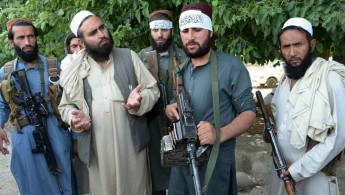Number of civil conflicts skyrockets since 2001: report
The number of civil conflicts around the world has doubled since 2001, posing new challenges for reducing global violence, the International Committee of the Red Cross said on Monday.
More armed groups have also "emerged in the last six years than in the previous 60," the organisation said in a new report.
The report, titled the "Roots of Restraint in War," said the proliferation of non-state actors has made the adherence to basic humanitarian principles more challenging. Historically, the ICRC has largely focused on working with national militaries and well-strutured rebel group to enforce international laws.
The ICRC is the main organisation protecting the Geneva Conventions - which established the laws of war.
But the report said the ICRC needs to update and respond to the changing nature of conflict.
Between 2001 to 2016, the number of "non-international armed conflicts" jumped from 30 to more than 70.
Twitter Post
|
"Only one-third of conflicts are between two parties today," while 44 percent "have between three and nine opposing forces," the report said.
It highlighted the examples of the Libyan city of Misrata, where 236 armed groups were recorded in 2011, and data from the Carter Center saying that in 2014 the Syrian conflict was being fought by 1,000 separate groups.
The decentralisation of power within armed groups also makes it more challenging to adhere to international laws of warfare, making "talking to and influencing all sides more difficult, but not impossible," it added.
The report suggested humanitarian groups first focus on understanding how behavioural norms are formed within armed groups.
In the Middle East, Syria, Yemen and Libya have been marked by years of civil war, with hundreds of thousands of casualties and millions of people displaced.
Agencies contributed to this report.
Follow us on Twitter: @The_NewArab





 Follow the Middle East's top stories in English at The New Arab on Google News
Follow the Middle East's top stories in English at The New Arab on Google News
![Netanyahu furiously denounced the ICC [Getty]](/sites/default/files/styles/image_330x185/public/2024-11/GettyImages-2169352575.jpg?h=199d8c1f&itok=-vRiruf5)
![Both Hamas and the Palestinian Authority welcomed the ICC arrest warrants [Getty]](/sites/default/files/styles/image_330x185/public/2024-11/GettyImages-2178351173.jpg?h=199d8c1f&itok=TV858iVg)
